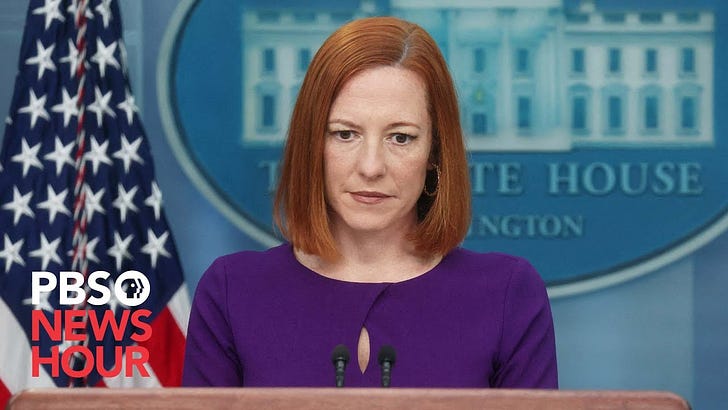Friends, our deepest apologies for not keeping up with our usual publication schedule. Sometimes, our jobs pull us away from the newsletter. And over the past few weeks, we’ve been pretty busy fighting the good fight. I don’t comment much on pending litigation, but click here if you want to feel our pain. Skip to the final minute at 56:00 for the punch line.
Meanwhile, at the White House podium, the Biden Administration claimed credit for ending the NIDA Monopoly.
Three quick points.
First, the Biden Administration blames the Trump Administration for the delay and implies that the Biden Administration ended the delay. That’s not what happened: in its final hours, the Trump Administration is the one that marshaled in the new rules to approve new growers. So while it is undoubtedly true that the Trump Administration caused the delay, it is equally true that the Trump Administration laid the groundwork for the framework that is currently in place.
Second, never forget that neither Administration ended this program on their own initiative. The person that ended the NIDA monopoly doesn’t work in government. Her name is Dr. Sue Sisley, and (with our help) she sued DEA and put the agency in a bind. The agency had no plans to advance this program until Dr. Sisley took the agency to court. Please don’t let the Administration rewrite history.
Third, since ending the NIDA monopoly and establishing the new program, DEA has been very supportive of cannabis research. DEA’s leadership has been engaged and has licensed additional growers. While DEA rightly shoulders significant blame related to the current mess in cannabis policy, as of today, it is not the primary agency that stands in the way of clinical research with real-world cannabis. Think about it. In the past two years under this Administration, few if any federal agencies have done more to change and further cannabis policy than DEA. Kudos to DEA and its leadership.
And yet, clinical trials with real-world haven’t progressed. Why? For starters, the funding isn’t there. Relax regulations all you want. No money, big problem.
Equally important, DEA isn’t the problem. While DEA has relaxed barriers, another federal agency has stolen the mantle. Who? FDA. In brief, FDA refuses to allow clinical research with whole plant botanical cannabis similar to that used in dispensaries across the country except according to the most stringent cGMP requirements that are currently nearly impossible to meet. Hence, the quest to do research with real-world cannabis continues to stall. Stay tuned. More on this to come.



